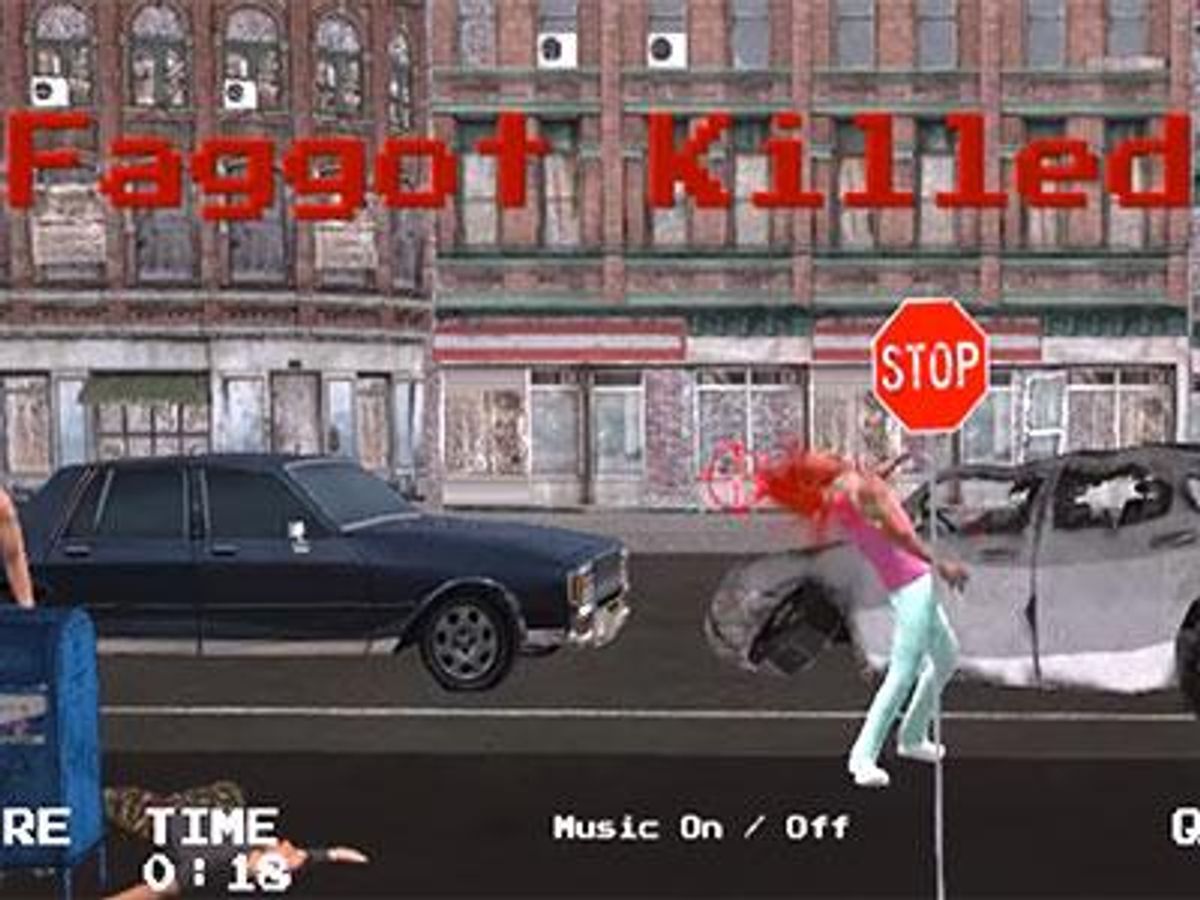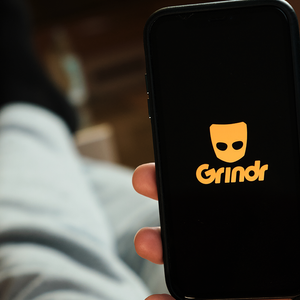While Steam's "Greenlight" project was established to help small game developers get their products out there, the online gaming site took on more than it bargained for when one developer decided to create the most "overly offensive game possible."
Even its title is an affront: Kill the Faggot, developed by California-based developer Randall Herman as a small part of a larger title for Skaldic Games. The crude shooting-gallery style game was pulled from the site almost as quickly as it became available, reports gaming site Ars Technica. The game, also known by its acronym, KTF, awarded players points for shooting gay people, with more points awarded for "transgender kills;" players lost points if they shot heterosexuals.
Gay and trans characters were identifiable by the pink shirts and dresses they wore, while background voices repeated offensive jokes about AIDS, prison rape, and transition-related surgery. The game was promoted as a way for people who "hate gays" to "unleash your frustration on the 'LGBT' community."
Within two hours, Steam had received a deluge of complaints and phone calls about the game's content from gamers, spurred in part by games critic James Sterling. Steam quickly banned the title from their download shop, but has not publicly commented on the issue.
In the aftermath, some users requested the site create stronger filters for games, like KTF, which clearly violate the site's terms of service against incendiary language and imagery, notes Ars Technica. The site allows games to be uploaded without the Steam staff's approval and are voted on by users; the site instituted a $100 fee as a "quality" control last year after ultra-violent shooting game Hatred raised ire.
After the game's removal, Herman -- who also works for a Christian shoe developing company, according to Ars Technica -- quickly uploaded it for free dowload to Skaldic Games, and wrote a statement about his intent, saying, "These people think that if you are even remotely homophobic, you are 'hateful' and a 'bigot,' and do everything they can to destroy you in every vicious way possible. So I decided to go down a path that most develoeprs are afraid to go down: to piss these people off by making the most overly offensive game possible to these idiots to prove a point."
Skaldic Games still intends to release KTF as a "mini-game" for a larger game titled The Shelter: A Survival Story, notes Game Politics. "As for an apology -- ain't gonna happen," the site wrote in a statement after KTF was pulled from Steam. "To everyone that got overly offended. Good, that's what we were going for," adding that their next game will be "way more offensive."
Meanwhile, many LGBT gamers and allies have argued that KTF constitutes "hate speech," spurring conversation on what kind of games should be allowed online, and whether Herman should possibly face legal charges. The Huffington Post, summarizing the debate, notes that some users think such content is simply allowable satire, while others think it best ignored so as to not fuel the production of similar products. Others have argued that sites like Steam and individual gamers have a responsibility to resist anti-LGBT violence in games.
"Hate speech" is considered, under constitutional law, to be any gesture or conduct, writing, or display which is forbidden because it may incite violence or prejudicial action against or by a protected individual or group, or because it disparages or intimidates a protected individual or group, including those based on race, color religion, national origin, sexual orientation, gender, disability, or other traits.
However, the American Bar Association cautions that under the First Amendment, individuals do have a right to speech that the listener disagrees with and to speech that is offensive and hateful. It becomes a crime, the association says, when those words are deemed likely to cause a listener or the target of that speech to react violently.



















































































